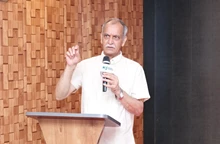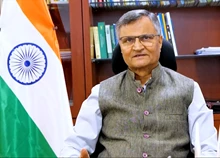
As per the report, New Delhi is the second most polluted capital city in the world but it’s shocking to say that it’s not the most polluted city in India. Bhiwadi in Rajasthan is the most polluted city in India in 2022.
The city had an annual Particulate Matter 2.5 (PM2.5) level of 92.7, and nearly 60% of Indian cities surveyed for the report had pollution levels nearly seven times higher than World Health Organization (WHO) standards. The report was released by the swiss air quality technology company IQAir, which collected data from more than 30,000 air quality monitoring stations across 7,323 locations in 131 countries.
India committed to resetting its National Clean Air Program targets in 2022, with the goal of reducing particulate matter concentrations by 40% by 2026. However, the report also highlights policy decisions including the relaxation of environmental regulations for coal mines, allowing for increased production that drover particulate matter.
Chad, Iraq, Pakistan, Bahrain, and Bangladesh were the top five most polluted countries in 2022. It discovered that eight of the world's ten most polluted cities are located in Central and South Asia.
While the number of countries and regions with air quality monitoring has steadily increased over the last five years, the report emphasizes that there are still significant gaps in government-operated regulatory instrumentation in many parts of the world.
"Too many people all over the world are unaware that they are breathing polluted air. Air pollution monitors provide hard data that can inspire communities to demand change and hold polluters accountable, but when monitoring is patchy or uneven, vulnerable communities can be left with no data to act on," said Aidan Farrow, Senior Air Quality Scientist at Greenpeace International.











